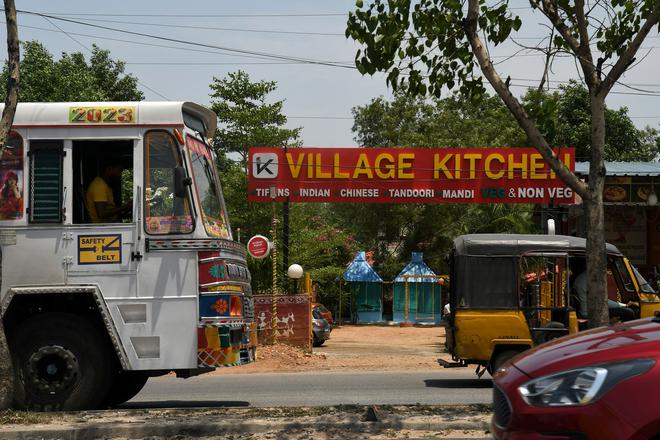
Nearly two decades after pioneering medical emergency response in the country through 108 service, Telangana is set to start a service to further cut the time for medical response during road accidents. The State plans to train police officials as well as dhaba owners, staff working at petrol stations, and garages on the National Highways to reduce fatalities in road accidents, by making them partner up with the police.
Director General of Police Anjani Kumar said that a plan is being rolled out to train staffers of commercial establishments along the highways as they have observed that quicker response time during major accidents or during the ‘golden hour’ can be a life saver.
“Our observation has showed that a lot of fatal accidents can be handled better if response time is low. With the staff of dhaba, petrol stations and garages having the knowledge of basic first aid, we believe that we can save many more lives,” said Mr. Kumar who shared his vision for the programme.
“We will be training people not only about administering basic first aid but also on how to handle the persons involved in accidents. For example, someone with bleeding injuries would need a torniquet and a person stuck in a mangled car might be helped out by the workers in a garage with the tools they have. As of now, we are identifying the places on highways and we will be engaging the police officials to train them. This is a long task and will take time to come into action, but we believe that we can save lives through this as every minute counts for a person involved in an accident,” said the State police chief.
In 2021, a majority of the road accidents (81,410 out of 4,03,116 cases) were reported between 6 p.m. and 9 p.m. accounting for 20.2% of total road accidents. It is during these accidents that the first responders in the neighbourhood can make a difference. The national highways accounted for 53,615 fatalities in 4,03,116 accidents in 2021 according to National Crime Records Bureau data. Telangana accounted for 21,723 accidents on the highways where 7,969 individuals were killed. India has one of the highest traffic accident rates in the world. Recently, Road Transport and Highways Minister Nitin Gadkari has been quoted as saying that India will miss its target of reducing traffic accidents by 50% in 2024.
In April this year, the Telangana government announced the formation of a Telangana Emergency Response Team (TERI) and the establishment of 55 emergency and trauma centres across the State to provide immediate medical care to accident victims. “Trauma and road accidents account for 24 % of cases that come to the emergency department. Whereas 35 % of pre-hospital deaths and 40 % of trauma deaths occur within 24 hours of hospital admission due to bleeding. Studies have shown that timely response can prevent 30 % to 40 % of hospital deaths,” says the government.
Minister for Health T. Harish Rao had said at the launch of TERI that it was a part of the State government’s commitment to provide healthcare to all. The aim is to prevent loss of life due to a lack of timely medical treatment. The emergency medical services will cover a wide range of medical emergencies, including trauma, heart attack, stroke, maternal and child emergencies, and medical and surgical emergencies.
There are 23 national highways in Telangana. The NH–44 Kashmir to Kanyakumari, is the longest in the State, which starts at Adilabad on Penganga river and ends at Pullur toll plaza in Gadwal Jogulamba district, covering a distance of 521 kms.
Similarly, the NH-65 Pune-Machilipatnam highway connects Hyderabad-Suryapet-Vijayawada, one of the busiest routes. Then another highway leads from Hyderabad to Bhoopalpatnam in Chhattisgarh and runs 472 kilometres long. The Hyderabad-Mumbai national highway is another arterial road.







